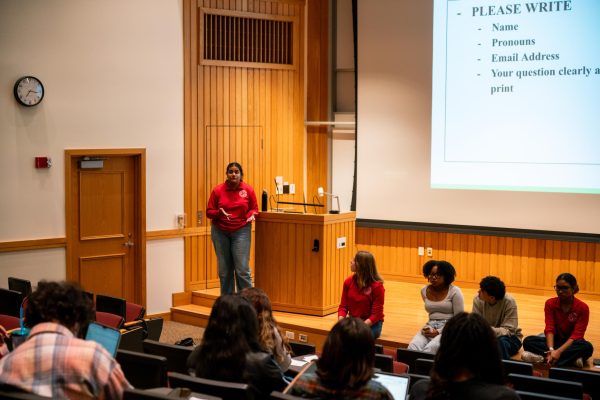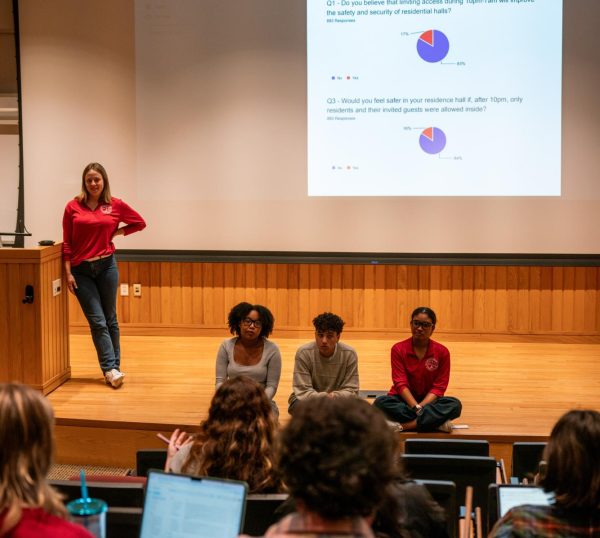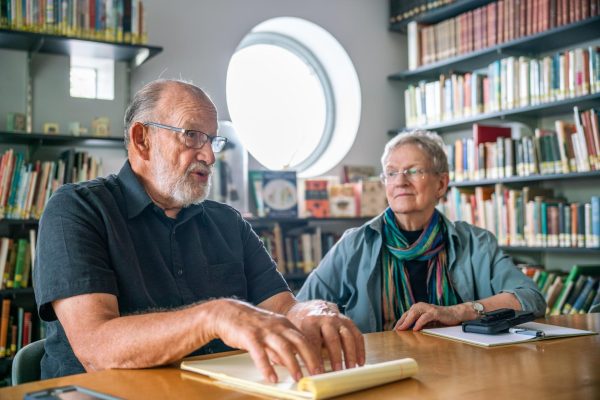Junior Practicum Aims to Provide Career Readiness Skills in Lieu of Summer Internships
While third-year College students won’t enroll in the fall due to the College’s three-semester plan, they will have the opportunity to continue their education off-campus with the Junior Practicum program. The practicum is designed to help build career readiness skills. Although the practicum offers an opportunity for experiential learning, some students remain concerned that it will not make up for lost internships during the summer semester.
“I think that everyone in the community is making an adjustment that they would rather not make [due to COVID-19],” said Chair of the Board of Trustees Chris Canavan, OC ’84. “[But] if we think about other ways in which Oberlin could provide an experience for juniors within this pandemic, I have a hard time thinking of a better way to provide that kind of experience.”
The Junior Practicum will start with a month-long virtual Career Readiness and Skill-Building Summit. Afterward, third-years will have the opportunity to engage in hands-on experiences through a research project with select faculty or a short term, remote micro-internship with professionals in a student’s chosen field.
The career readiness summit will last from Sept. 8 to Oct. 2 — with about four or five hours of programming each day — and is the only avenue for third-years to earn Winter Tem credit this year. Students who participate will develop relevant career skills such as data analysis, video editing, and writing grant proposals. The summit will include diversity and inclusion training to help people of color navigate majority-white workplaces and help white individuals learn to be effective allies in the workplace. Students will also explore complex problems such as climate change and police brutality.
After the summit, students who choose to participate in the experiential component will be placed on a faculty research project or be matched with an Oberlin alumnus or parent who is willing to sponsor a micro-internship.
Research projects will be offered in disciplines across the College, and students will work in groups of five with their faculty mentor. Potential projects or internships will start in October and run for eight weeks, with students logging about 10 hours per week. Students participating in research projects or micro-internships will be eligible to earn up to about $800.
Dana Hamdan, Executive Director of the Career Development Center, sees the Junior Practicum as a valuable experience for third-years who usually have to balance career development with classes and extracurriculars. The practicum will give third-years the chance to focus on skills beyond the basics like résumé and job interview training.
“The Junior Practicum program was designed with one overarching purpose in mind: to ensure that our juniors can speak both confidently and in creative ways with future employers and graduate and professional schools about how they spent their time during this global pandemic,” Hamdan wrote in an email to the Review.
The experiential aspect of the practicum is also a valuable opportunity for third-years to test out a field of interest. Given the unusual circumstances, students will be able to tailor the experience to their own learning goals.
Some students remain concerned that the plan is not enough to compensate for internship opportunities they will miss by attending college the summer before senior year.
After President Ambar announced the three-semester plan, rising College third-year Alyssa Kapasi — the Class of 2022’s representative on the Alumni Leadership Council — started advocating for third-years’ concerns among other councilors. Kapasi also created a petition calling for first-years to switch to the spring and summer semesters, allowing third-years to enroll in the fall and spring. Many other third-years contributed to the writing of the petition, which garnered 113 signatures.
“I created the petition because I believe that third-year students will be at a disadvantage to their peers at other institutions who will be able to use the summer to work, get internships, or do research,” Kapasi wrote in an email to the Review. “The Junior Practicum, while an interesting concept and certainly better than nothing, will never be as good as an internship or opportunity that lasts for multiple months.”
Other students were more concerned with how the three-semester plan could impact the needs of low-income and underrepresented students who need to work in the summers for financial reasons or who lack reliable housing for the spring semester. Some students criticized Kapasi’s petition for its focus on internship opportunities.
“My hope with that was that the petition could become a community document where everyone could add ideas,” Kapasi said. “My intention was to never offend anyone and I did my best to engage in dialogue with anyone who wanted.”
Nine students left personal statements on the petition expressing how the plan affected their financial situation, upcoming summer plans, career readiness, and academic track. Some third-years stated that the plan was so disruptive to their academic lives that they were considering transferring. Others expressed their worries about feeling burned out after four consecutive semesters in school.
Canavan acknowledged student concerns but maintained that the College’s programming makes the most out of a challenging situation.
“It’s going to be hard on [the junior class] in particular, but it’s going to be hard on everyone and in lots of different ways,” said Canavan. “[However,] I think that this junior practicum is … a testament to how much creativity, ingenuity, and commitment, and passion there is inside the community — whether it’s faculty, students themselves, alumni, parents, and the rest.”
Third-years who have questions about the Junior Practicum program, or alumni and parents who want to sponsor a micro-intern can contact [email protected].





